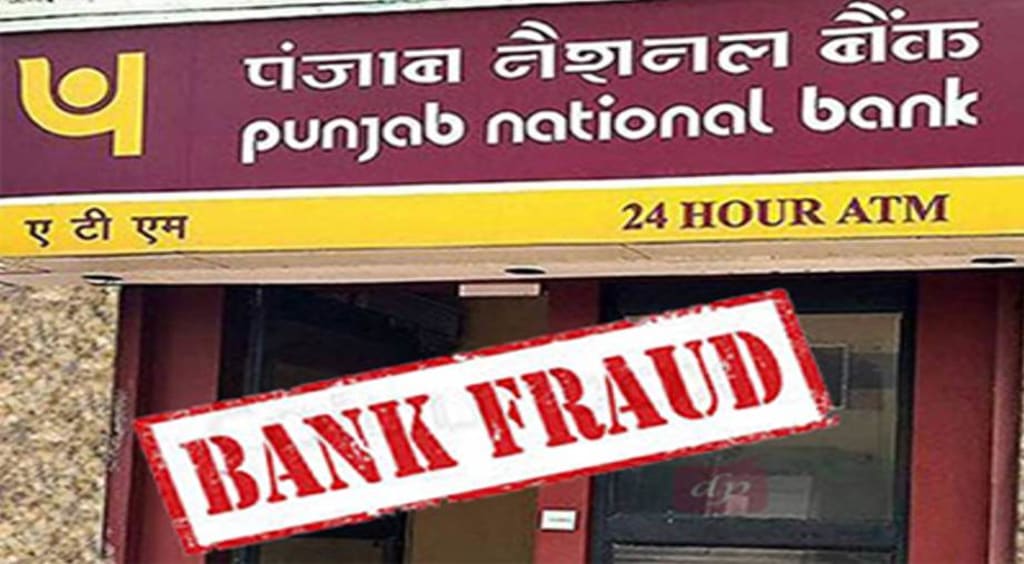"Uncovering the $2 billion dollar fraud: The PNB Scandal rocks the banking world"
"A deep dive into India's largest banking scam and its aftermath"

I. Introduction
A. Brief overview of the PNB Scam case
The PNB Scam, also known as the Nirav Modi scam, was a major fraud case that came to light in 2018 involving the diamantaire Nirav Modi and Punjab National Bank (PNB), one of India's largest public sector banks. The scam was perpetuated through the issuance of letters of undertaking (LoUs) by PNB officials to Nirav Modi's companies without proper documentation or collateral, which allowed the companies to secure loans from other banks overseas. The total amount involved in the fraud was estimated to be around ₹13,000 crore (approximately US$2 billion).
B. Importance of the case in the Indian banking sector
The PNB Scam is considered one of the largest banking scams in Indian history and has had far-reaching consequences for both the banking sector and the Indian economy. It exposed serious weaknesses in the banking system, particularly in the area of risk management and internal controls, and raised concerns about the ability of public sector banks to handle the large volume of non-performing assets (NPAs) on their books.
II. Background of the PNB Scam
A. Formation of Nirav Modi's companies
Nirav Modi is a diamond merchant who established several companies in India and abroad, including Firestar Diamond and Firestar International. These companies were involved in the import and export of diamonds and other precious stones.
B. Modus operandi of the fraud
The PNB Scam was carried out by issuing LoUs, which are guarantees given by one bank to another in favor of a borrower, to Nirav Modi's companies. The LoUs were used to secure loans from other banks abroad, but were not backed by proper documentation or collateral. PNB officials were found to have been colluding with Nirav Modi and his companies in the issuance of these LoUs, and the scam went undetected for several years due to the lack of proper checks and balances in the banking system.
C. Role of PNB officials in the scam
The scam was made possible by the involvement of PNB officials who issued the LoUs without proper documentation or collateral. Several PNB employees, including two deputy managers, were arrested in connection with the scam and charged with criminal conspiracy, cheating, and corruption. The involvement of PNB officials in the scam raised serious questions about the integrity of the public sector banking system and the need for stricter accountability measures.
III. Development of the Scandal
A. Discovery of the fraud
The fraud was discovered in January 2018, when PNB reported that it had detected fraudulent transactions worth ₹11,400 crore (approximately US$1.7 billion) at one of its branches in Mumbai. The bank reported that the transactions had been conducted through the issuance of LoUs to Nirav Modi's companies without proper documentation or collateral. The discovery of the fraud sent shockwaves through the Indian financial system and led to a widespread investigation into the case.
B. Initial reaction of PNB and the government
PNB initially reacted to the discovery of the fraud by suspending several employees who were involved in the scam and launching an internal investigation. The government also stepped in and ordered a probe into the matter by the Central Bureau of Investigation (CBI) and the Enforcement Directorate (ED). The government also took steps to recover the funds that had been lost in the scam, including freezing the assets of Nirav Modi and his companies.
C. Investigation by the enforcement agencies
The investigation into the PNB Scam was carried out by the CBI and the ED, who worked together to gather evidence and build a case against the accused. The investigation was a complex and time-consuming process, involving the examination of thousands of pages of documentation and the questioning of multiple individuals. The agencies also worked with foreign law enforcement agencies to track down and seize the assets of Nirav Modi and his companies, which were spread across several countries.
IV. Consequences of the Scam
A. Financial impact on PNB and the government
The PNB Scam had a significant financial impact on PNB and the government. The bank was forced to make provisions for the fraudulent transactions, which resulted in a loss of ₹7,178 crore (approximately US$1 billion) in the fiscal year 2018. The government also had to bear the cost of the investigation into the matter and the recovery of the funds that had been lost.
B. Reputation damage to PNB and the Indian banking sector
The PNB Scam also had a major impact on the reputation of both PNB and the Indian banking sector as a whole. The fraud raised serious questions about the risk management practices of public sector banks and the need for greater accountability and transparency in the banking system. It also damaged the reputation of the Indian banking sector and cast a shadow on the country's ability to attract foreign investment.
C. Criminal proceedings against the accused
The CBI and the ED launched criminal proceedings against Nirav Modi, his companies, and several PNB officials who were involved in the scam. The accused were charged with a range of offenses, including criminal conspiracy, cheating, and corruption. Several of the accused were arrested and are currently undergoing trial in India, while Nirav Modi remains a fugitive and is believed to be living in the UK.
V. Conclusion
A. Summary of the key events in the PNB Scam case
The PNB Scam was a major fraud case that came to light in 2018 involving the diamantaire Nirav Modi and Punjab National Bank (PNB). The scam was perpetuated through the issuance of letters of undertaking (LoUs) by PNB officials to Nirav Modi's companies without proper documentation or collateral, which allowed the companies to secure loans from other banks overseas. The total amount involved in the fraud was estimated to be around ₹13,000 crore (approximately US$2 billion).
B. Importance of lessons learned for the future
The PNB Scam serves as an important lesson for the Indian banking sector and highlights the need for stricter risk management practices and greater accountability in the banking system. It also highlights the importance of investing in technology and digital systems that can help prevent and detect fraud in the future.
C. Significance of the case in the context of the Indian banking sector
The PNB Scam is considered one of the largest banking scams in Indian history and has had far-reaching consequences for both the banking sector and the Indian economy. The case has exposed serious weaknesses in the banking system and raised concerns about the ability of public sector banks to handle the large volume of non-performing assets (NPAs) on their books. The case is significant in the context of the Indian banking sector and highlights the need for reforms that can help prevent similar scams from occurring in the future.
About the Creator
Yuvaraj Murugasan
"Discover thought-provoking content on our page. From latest news and mystery,crime,thiriller,death to cutting-edge technology, we offer something for everyone. Join us for a journey of learning and inspiration. Stay tuned!"






Comments
There are no comments for this story
Be the first to respond and start the conversation.